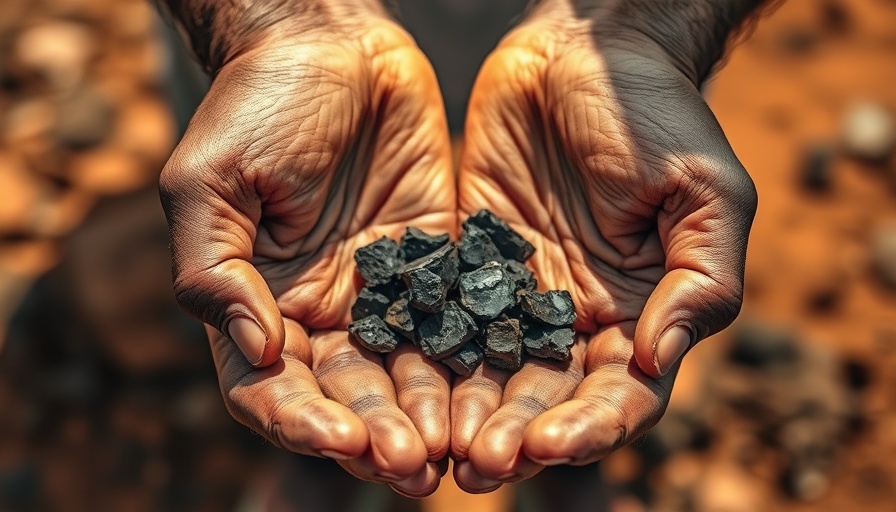
The Grim Reality of Cobalt Mining: A Child's Price
The stark contrast between the luxurious electric vehicles that are now symbols of sustainability and the dire conditions of cobalt mining in the Democratic Republic of Congo (DRC) compels us to confront a troubling truth: how much are we willing to overlook for our environmental goals? The gripping DW documentary highlights that cobalt, a critical element found in the batteries of these vehicles, is often sourced under horrendous conditions, including the exploitation of child labor. Over 40,000 children are believed to be employed in illegal mines, toiling away in the shadows of a burgeoning global demand for electric vehicles.
In 'Illegal cobalt mining in the Congo - How batteries are powered by child labor', the documentary delves into the stark truths of child labor in cobalt mining, which sparked a deeper analysis on our end.
Understanding the Complexity of Cobalt Supply Chains
Cobalt mining has become a critical issue due to the glamour surrounding electric vehicles. Yet, the reality is much more complicated than TikTok videos portray. While many media representations emphasize children laboring in mines, those working outside the confines of the mines for minimal pay tend to go unnoticed. As evident in the documentary, children may not always be found within the mines' dangerous confines but often help their families in supportive or informal roles, underscoring the socioeconomic challenges that drive families to place their children's future at risk.
Challenges in Regulating Child Labor
The involvement of children in mining reflects a failure not only of local governance but also of international companies exploiting these deposits. The Fair Cobalt Alliance, which includes notable entities like Tesla, recognizes the urgent need for responsible sourcing and the improvement of miners' conditions. Despite these efforts, many still suffer. The International Energy Agency projects that by 2030, electric vehicle sales will surge as society seeks cleaner alternatives. However, if we fail to address the unethical practices in cobalt extraction, the progress towards sustainability will be tainted by human suffering.
Taking Action: Towards Responsible Sourcing
As consumers, we must hold corporations accountable. Companies need to verify their supply chains and ensure that the cobalt in their products is not tainted by child labor. Activism and a call for transparency in the cobalt supply chain is vital. Organizations like Save the Children are working closely with local communities to find sustainable solutions, proving that long-term commitment is essential for meaningful change.
In conclusion, as we embrace electric vehicles for their environmental benefits, we must not turn a blind eye to the human cost associated with cobalt mining. It is imperative to support initiatives that advocate for fair labor practices and child education. Only then can we claim a truly sustainable future.
 Add Row
Add Row  Add
Add 




Write A Comment